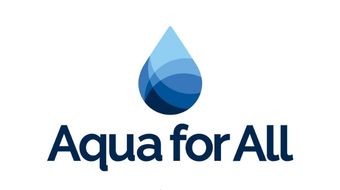PICTURE THIS: Living in a world where safely managed sanitation was a reality for all people. In this world, the full societal value of toilet resources – a concept formerly known as ‘human waste’ that was rebranded due to the universally recognised value of these resources as it relates to nutrients, energy, data, etc – were being realised through innovative sanitation technologies. Picture these innovative sanitation technologies promoting a sustainable circular economy and preventative health reality that was representative of the world’s diversity. Picture living in a world that existed at the intersection of a thriving Sanitation Economy and Social Inclusion agenda.
Coined by the Toilet Board Coalition, the Sanitation Economy is a robust marketplace of products and services, renewable resource flows, data and information that could transform future cities, communities, and businesses. Comprised of 3 sub-economies known as the Toilet Economy, Circular Sanitation Economy, and Smart Sanitation Economy, this marketplace within the water, sanitation and hygiene (WASH) sector is rooted in smart, sustainable, innovative, cost saving and revenue generating global business opportunities that have historically been untapped.
And as defined by the World Bank Group, Social Inclusion is the process of improving the terms on which individuals and groups take part in society—improving the ability, opportunity, and dignity of those disadvantaged on the basis of their identity.
In this Sustainable Development Goals (SDG) Era that seeks to build the blueprint for a cleaner, healthier, more sustainable and equitable future for our planet and its people, it is imperative that those of us operating as professionals within the Sanitation Economy – be it as entrepreneurs, employees, leaders of big corporations, enablers, government officers, grassroots organizers or academic researchers – should rally behind, invest in, improve and implement products, services, and policies that further social inclusion agendas and opportunities throughout the WASH sector.
SDG 6 seeks to ensure the availability and sustainable management of water and sanitation for all, and more specifically, Target 6.2 highlights the need to pay special attention to the needs of women and girls and those in vulnerable situations. This target emphasizes the importance of ensuring the inclusion of women and girls across the sanitation value chain which is a priority that has been increasingly reflected across the diverse WASH organisations.
But even looking beyond specific SDG indicators, we can also be collectively intentional in including more diverse datasets to inform our product design offerings and overall services. In addition to including the perspectives of people of all abilities, there is also a need in the preventative and predictive health space within the Smart Sanitation Economy to recognise and seek to tackle the biases towards dominant social identities in biobanks and as it relates to machine learning and artificial intelligence.
We can also be intentional in creating inclusive and language-diverse marketing campaigns and internal policies for the products and services that are being developed inline with the vision of the Sanitation Economy. For instance, LunaPads is a sustainable menstrual health management (MHM) organization that has a policy that specifically states that “because most conversations about periods focus on cisgender girls & women — that is, people whose gender (girl, woman) aligns with the sex (female) they were assigned at birth — it can be easy for people to forget that some transgender men, gender queers, and nonbinary have periods too.” This policy formed in 2011, has since been reflected in their menstrual health offerings such as their Menstrual Health boxer briefs.
Lastly, according to Women Deliver, meaningful youth engagement in all stages of research, design, implementation, and evaluation has been shown to make programs more effective and ensure that resources are used efficiently. To echo this research and these sentiments and make strides in improving in this realm of social inclusion, the Toilet Board Coalition Secretariat has developed a financial support and social inclusion policy for its upcoming Sanitation Economy Summit. However, the effective inclusion of youth voices across the sanitation value chain poses to be a great challenge and opportunity for the growth of our sector and realisation of the Sanitation Economy.
The Toilet Board Coalition invites others in the WASH sector to embark on this mission to effectively develop and iterate the intersection between the Sanitation Economy and Social Inclusion byway of research, development, and also by diversifying our sector’s pipeline for leadership and entrepreneurship.
PICTURE THIS: Joining us at the Sanitation Economy Summit this November so that we can collectively and strategically develop a sustainable and innovative path forward that is as inclusive as possible!
– Jasmine Burton, Toilet Accelerator and Sanitation Economy Pipeline Manager
#sanitationeconomy #socialinclusion #womeninwash #sanitationeconomysummit #toiletboardcoalition






